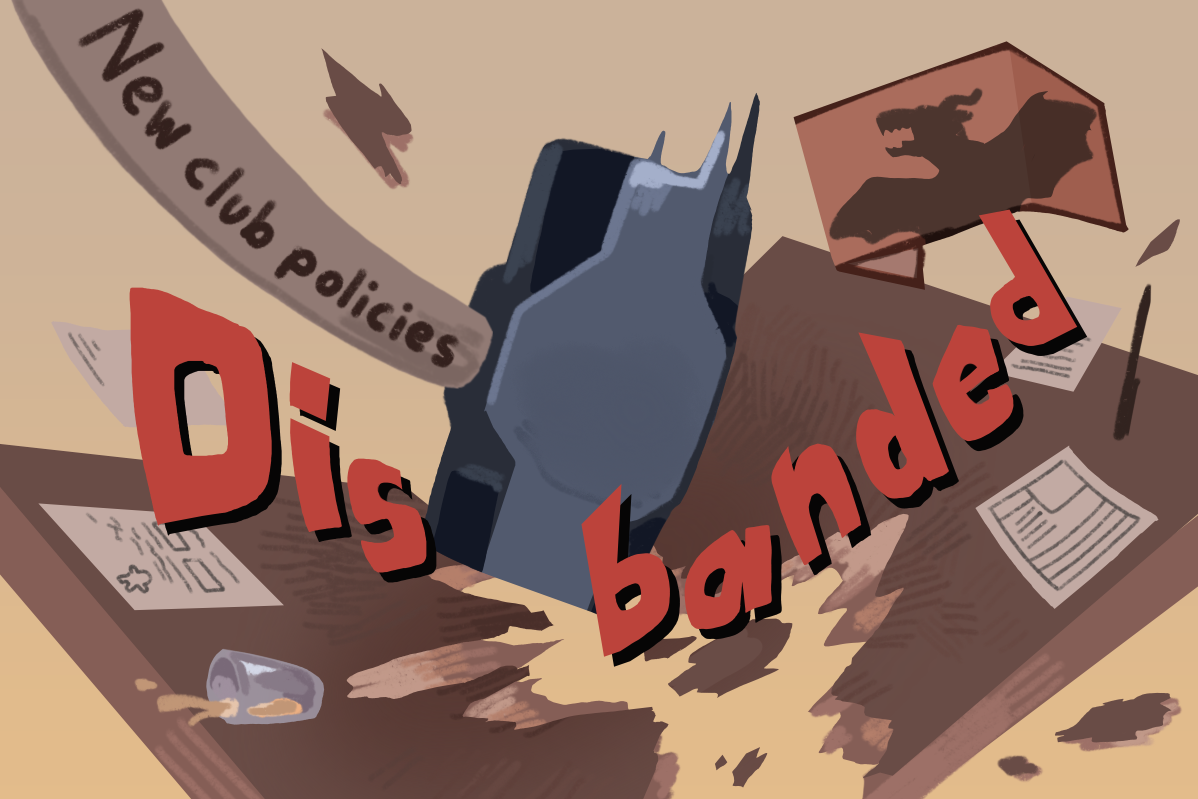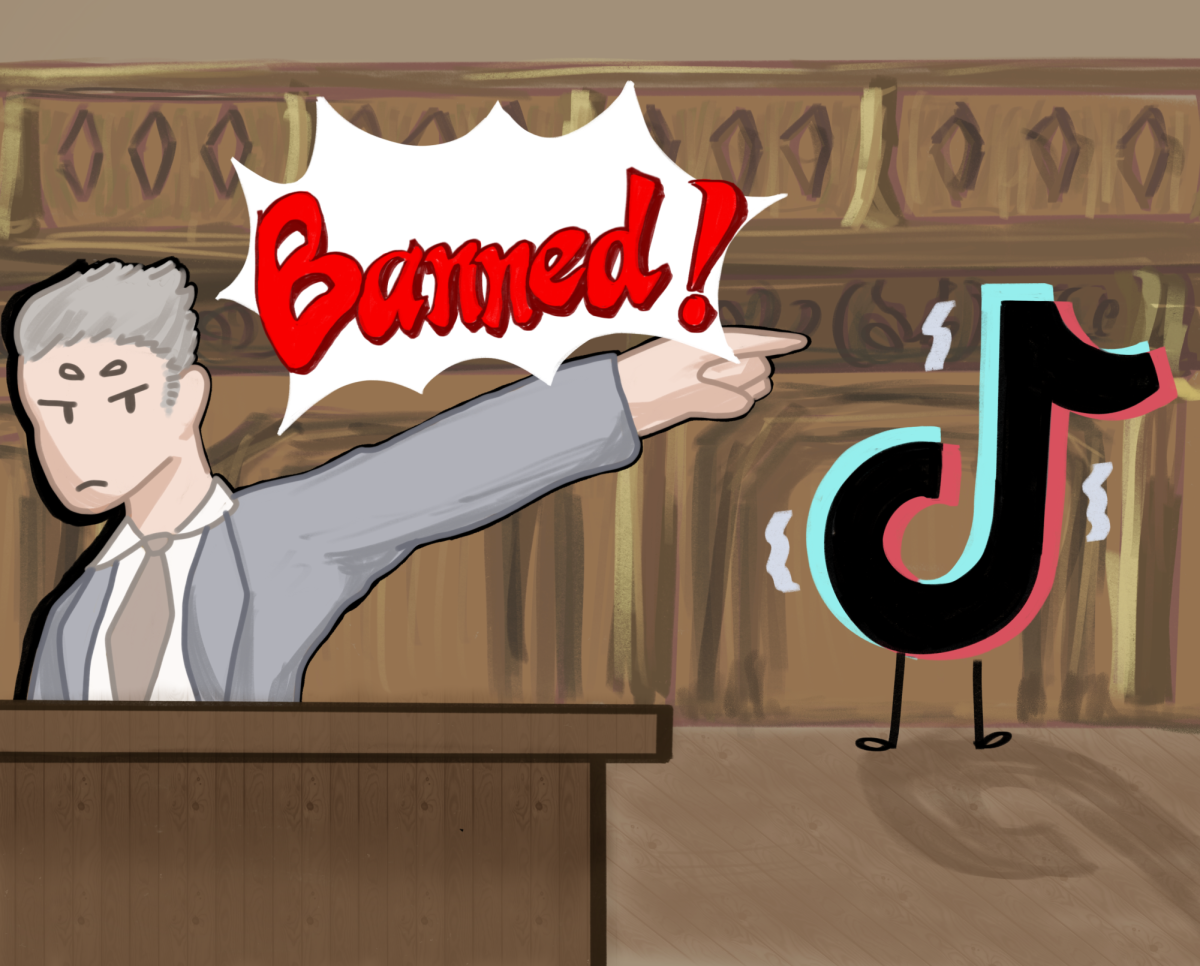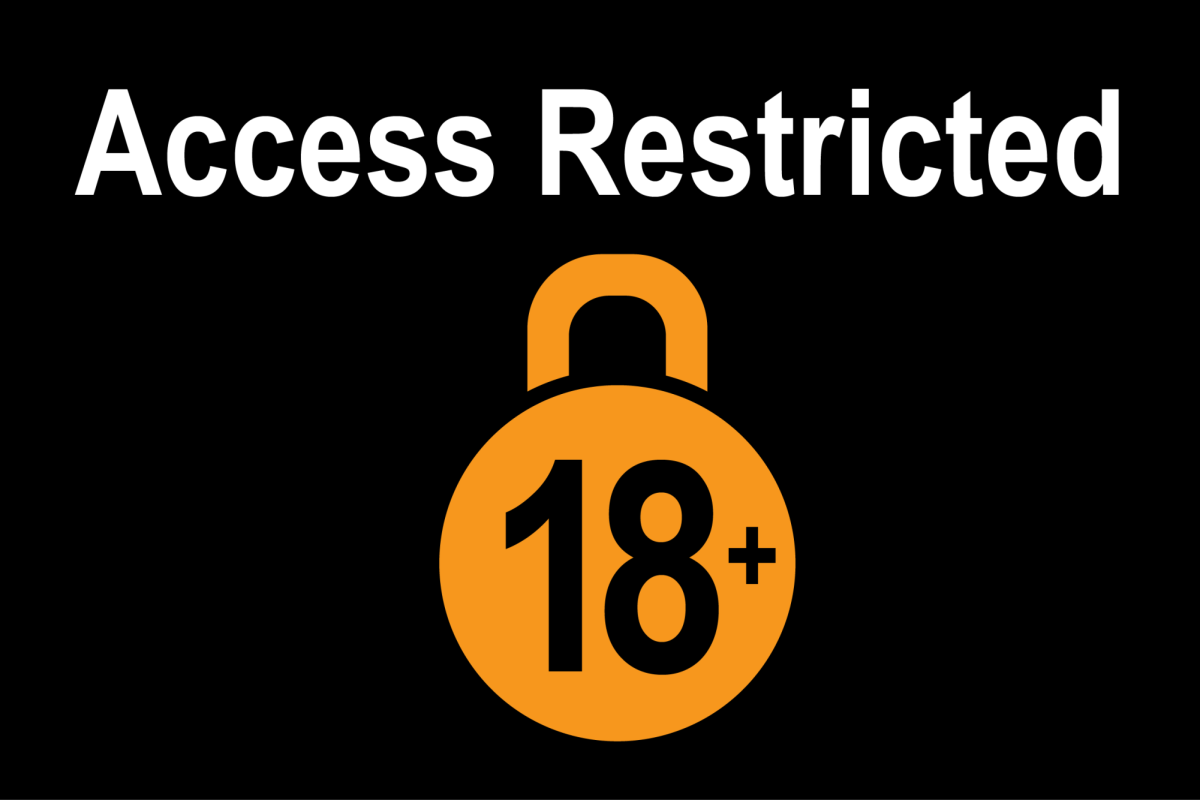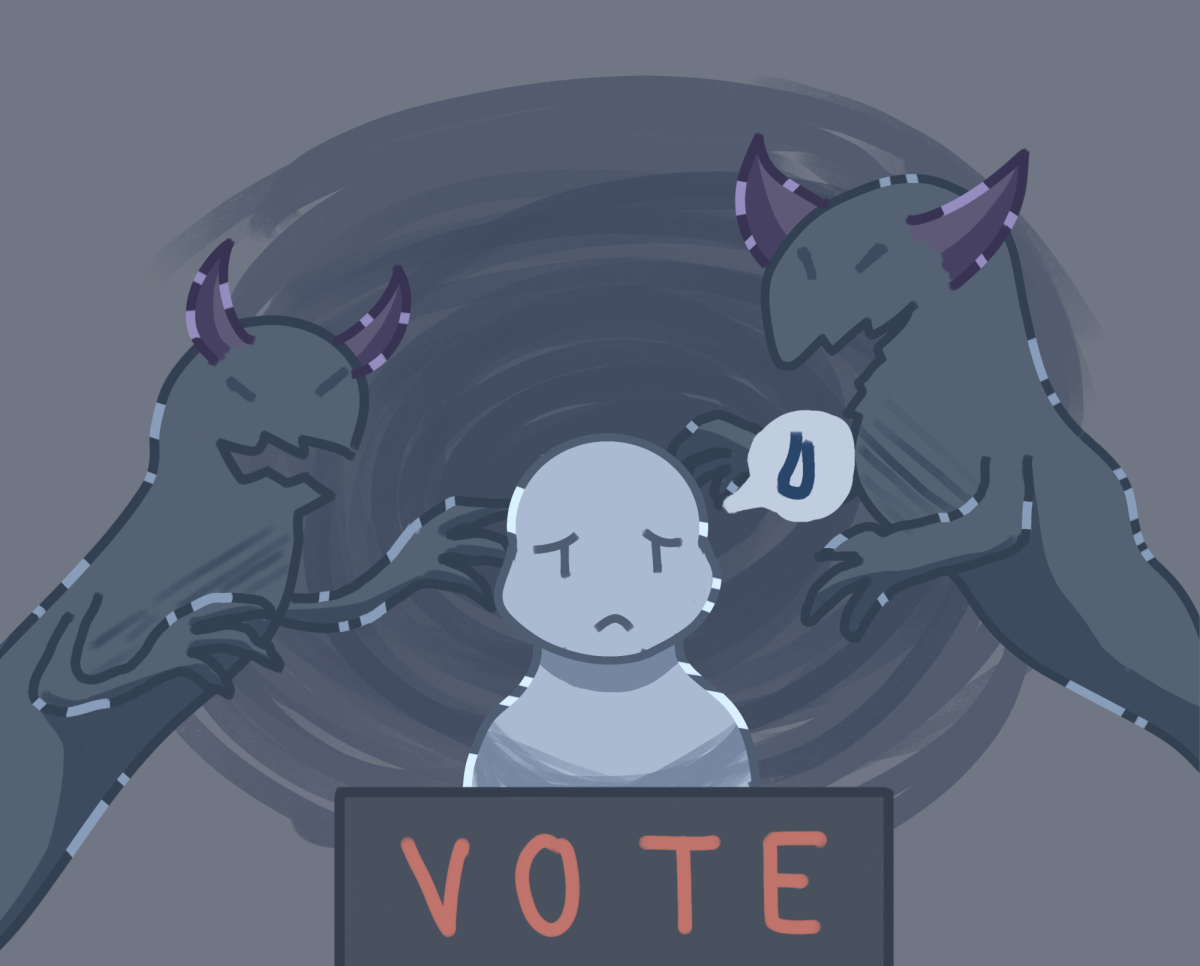 By Anjulie Van Sickle
By Anjulie Van Sickle
It’s midnight. After a crazy weekend, a student remembers that she has a five-page research paper due in eight hours.
She frantically scans her notes, trying to find something that she can work with. After two hours, she has nothing.
Out of sheer desperation, she types her topic into Google. Several websites come up advertising opinions, facts and even papers that are available for purchase concerning her subject.
She looks over her shoulder to make sure no one is watching. She clicks on a website and scans it until she finds a paper that deals with her topic.She puts in her information, pays $20 and downloads the paper. She has no choice. She has to make a good grade in this class so she can maintain her GPA and earn a scholarship. She considers the risk worthwhile.Many college students are constantly pressured to do well in their classes. Whether it’s looking over someone’s shoulder or plagiarizing an entire paper, some students will do anything to succeed.
“People have this thought that you have to go to college, which means graduating and being successful,” history professor Mike Walker said. “But it’s more than just learning information. It’s [about] earning a grade and getting a mark that says, ‘I accomplished this.’”
As a result, he said, students are becoming more concerned with the “letter of accomplishment” than what they are learning.
Procrastination is another motivation for students to cheat. When time runs out and there is no other option, some choose the easy way out. These “outs” include buying a paper online or stealing another classmate’s work or ideas.
According to the student code of conduct, which is published in the college’s catalogue, any time students copy answers or plagiarize, they are in violation of that code and subject to disciplinary action.
Instructors have the choice to file a complaint against a student if they believe it’s necessary. Such a complaint will go on the student’s permanent record.
However, some students fail to consider that cheating can have such a negative impact on their careers as students.
“It’s so important to get good grades,” psychology major Kemji Edo said. “Those who cheat aren’t thinking about the consequences.”
The consequences differ from situation to situation. Whatever they may be, they are sure to be severe.
“If it’s a student that has multiple violations across different [fields], if I find out about it, or if a dean finds out about it and [we] keep seeing that name, then it is the right of the instructor, or the dean, or even myself to pursue further action,” said Michael Gutierrez, vice president of academic affairs and student success. “That action could result in having the student sit out a semester or even an academic year.”
Gutierrez said the course syllabus is always referred to first in cheating cases. All instructors are required to have a section in their syllabus that explains their specific policy on academic dishonesty.
In some cases, the student automatically fails the course the first time cheating is detected. In others, there are steps: The first time it happens, the student fails the assignment. The second time, the students fail the entire course.
“If it’s 1302, you automatically fail the class [if plagiarism is detected],” English professor Larissa Pierce said. “In 1301, I’m more lenient simply because they just got to 1301 and I’m not sure if it was intentional or unintentional.”
Pierce said an easy way to improve students’ knowledge of how to avoid plagiarism is to take the first few weeks and explain how to use proper citations in their papers.
Advances in technology have made it easier for students to cheat. However, the methods of detecting cheating have also improved.
Through SafeAssign, professors are able to check the percentage of a paper’s originality. If a student has copied and pasted someone else’s work into a paper, the instructor is immediately notified.
“Even without SafeAssign, it’s easy to catch,” Walker said.
He described a situation when he was given an excellent paper, but knowing the student’s typical work, Walker realized it was not his student’s paper. The student was asked to stay after class and read his paper out loud. When he couldn’t pronounce most of the words, he confessed he had bought it.
“I don’t have the tolerance for it,” Walker said. “I would rather a student come to me and say, ‘I just don’t get this. I wrote a horrible paper.’ Then we can have a conversation about it and learn from it instead of using plagiarism tactics.”
Texting, writing answers on one’s arm and taking pictures of test answers are all common methods of cheating. Some take it further, placing answers inside the label of their water bottle.
“We know the bad cheaters,” Gutierrez said. “I’m sure there are some really ingenious ways that people cheat, but we don’t know what they are because we didn’t catch them. What we really find out are the people who don’t do it well. There are probably other ways, but they’re just too good. It’s like a magician: You don’t want to reveal all your secrets.”
When it comes to cheating on written tests, Edo described how students have become more clever with their strategies.
In high school, she said some students would even create diversions so that could get a copy of a test.
“Then there are the crazy codes and taps that friends would make up to get answers to one another in class,” she said. “A cough was A, two taps of the pen was B, and pulling the ear was C,” Edo said. “There were some crazy ways of cheating.”
Online instructors have even more difficulty monitoring cheating in their classes. Some resort to making tests more difficult or time restrictive, which doesn’t work for all students.
“I [prefer] online classes,” human management major Everardo Amaya said. “But the professor is afraid that we’re going to cheat, so he makes the tests harder. He gives us a very limited time to take them. Then those who take the time and read are at a disadvantage because we are not given enough time.”
Amaya emailed his professor about his concerns. The professor’s reasoning for making the tests more difficult was that students often take advantage of the fact that the class is online.
Cheating is also unfair to students who invest the time in studying and completing their assignments.
Ultimately, though, Gutierrez said taking the easy way out hurts the cheater more than anyone else.
“Grades are one thing, but I would like to think that it’s really about the learning,” Gutierrez said. “If you’ve not really learned what the objectives of that particular course were or that particular assignment, you’ve not come out with what you needed.”









